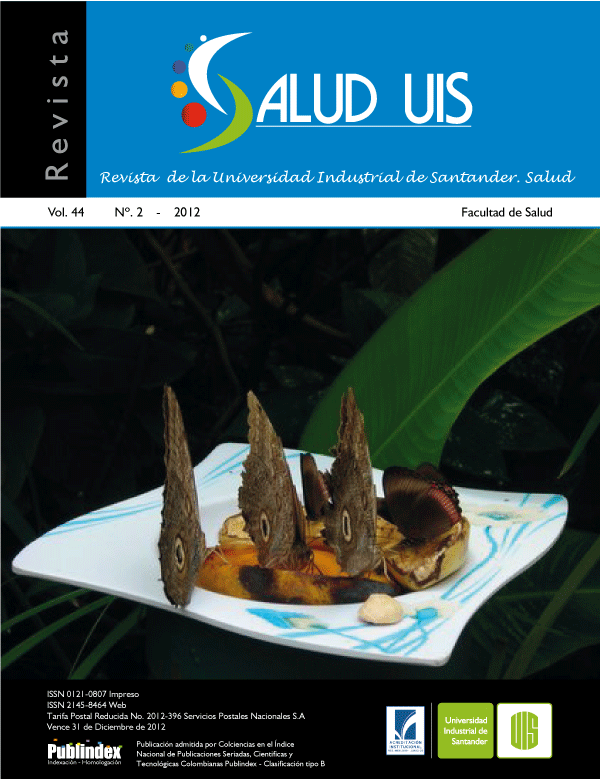Abstract
RESUMEN
Introducción: La hospitalización debe representar para cuidadores, valor agregado al aumentar sus conocimientos sobre la enfermedad y prevención de enfermedades prevalentes de infancia, generando cambios de actitud hacia salud y enfermedad, disminuyendo la morbimortalidad infantil. Objetivo: Establecer la eficacia de la educación recibida durante la hospitalización, referente a cambios en conocimientos en cuidadores sobre enfermedad motivo del ingreso y enfermedades prevalentes. Metodología: Estudio cuasi-experimental, con medidas repetidas y recolección prospectiva de información. Participaron 128 cuidadores, quienes previo consentimiento se les aplicó un formato para evaluar el nivel de conocimientos al ingreso y egreso, abordando temas de enfermedades prevalentes de la infancia. Se estimó para cada tópico cambio en conocimientos y posteriormente modelos de regresión lineal múltiple, se evaluaron determinantes de magnitud del aprendizaje. Resultados: Al egreso incrementó el porcentaje de respuestas correctas en los tópicos. Variables asociadas con el aprendizaje fueron: patología infecciosa (coeficiente:2,99%; IC95%:0,36 a 5,61), desnutrición (11,45%; IC95%:5,21 a 17,68), régimen subsidiado (-3,39%; IC95%:-6,41 a -0,37), cuidador con bachillerato (-2,36%; IC95%:-4,65 a -0,06) y considerar adecuado manejo (9,15%; IC95%:3,16 a 15,13). En cuanto a alimentación, los cuidadores de estratos ≥2 evidenciaban menor aprendizaje (-7,21%; IC95%:-13,73 a -0,69). Además, cuando les explicaban la enfermedad, presentaban mayor aprendizaje (7,43%; IC95%:0,27 a 14,59). Discusión: Este estudio exhorta a realizar futuras investigaciones que aporten nuevas evidencias sobre la importancia de la educación en salud a nivel intrahospitalario. Conclusiones: Incrementó el nivel de conocimientos durante la hospitalización, sin alcanzar 30% esperado y se evidencia que diversos factores condicionan este aprendizaje. Salud UIS 2012; 44 (2): 35-43
Palabras clave: Conocimientos, cuidadores, niño hospitalizado, salud infantil
ABSTRACT
Background: The hospital must represent for carers a value added, to increase their knowledge about the disease and prevention of prevalent diseases of childhood; causing changes in the attitude towards health and disease, with decrement in child mortality. Objective: To establish the efficacy of the education received during hospitalization, regarding changes in carers knowledge about the disease cause of admission and diseases prevalent. Methodology: A quasi-experimental study with repeated measures and prospective information recollection. A total of 128 caregivers previous informed consent, were interrogated with a format to assess the level of knowledge to the ingress and egress, addressing issues of prevalent diseases of childhood. Were estimated for each topic change in knowledge and then multiple linear regression models were evaluated determinants of magnitude of learning. Results: At discharge increased the percentage of correct answers on the topics. Variables associated with learning were infectious disease (coefficient: 2.99%, 95% CI 0.36 to 5.61), malnutrition (11.45%, 95% CI 5.21 to 17.68), subsidized (-3.39%, 95% CI -6.41 to -0.37), caregiver school (-2.36%, 95% CI -4.65 to -0.06) and to consider appropriate management (9, 15%, 95% CI 3.16 to 15.13). As for nutrition, ≥ 2 layers caregivers evidenced less learning (-7.21%, 95% CI -13.73 to -0.69). Also, when I explained the disease, had higher learning (7.43%, 95% CI 0.27 to 14.59). Discussion: This study encourages further research to provide new evidence on the importance of health education at the hospital. Conclusions: Increased knowledge level during hospitalization, without reaching 30% expected and evidence that several factors affect this learning. Salud UIS 2012; 44 (2): 35-43
Keywords: knowledge, caregivers, child hospitalized, child welfareSe autoriza la reproducción total o parcial de la obra para fines educativos, siempre y cuando se cite la fuente.
Esta obra está bajo una Licencia Creative Commons Atribución 4.0 Pública Internacional.
